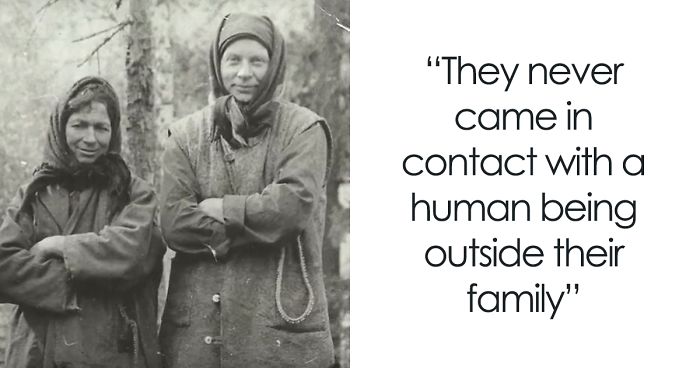
This Family In Siberia Was So Isolated, They Didn’t Even Know About WWII
Siberia is known to be one of the most sparsely populated regions on Earth. It is because of its harsh climate – primarily long and cold winters when the temperature on average drops to a freezing −13 °F (−25 °C). However, there are people out there who live there despite (or, because of) the lack of civilization. One such Russian family became famous worldwide for having lived almost throughout the whole 20th century far away from civilization in the Siberian taiga, Abakan district.
This is Karp Lykov – a man, who brought his family to Siberian taiga to escape the civilization
It all started during a purge in 1936 when Karp Lykov’s brother was shot by a Bolshevik patrol just outside their village. Russia was under the dictatorship of atheist Bolsheviks at the time and believers of any religion were harassed and persecuted. The Lykovs were members of the Old Believers – a fundamentalist Russian Orthodox sect, who were persecuted in Russia since the times of Peter the Great (early 18th century). After the killing of his brother, Karp Lykov, together with his wife Akulina and their two children – a son named Savin (9 years old) and daughter Natalia (2 years old) bolted to a forest and never returned.
Image credits: Unknown
Together with their two children, The Lykovs went deeper into the taiga and finally settled in
Together with some of their possessions and seeds, the Lykovs retreated deeper and deeper into the taiga. They even took a spinning wheel with them, to be able to make clothing, which they dragged for hundreds of miles. The family survived on potatoes and wild mushrooms. Two more children were born to Karp and Akulina while living in the taiga – son Dmitry in 1940 and daughter Agafia in 1943. Up until the late 70’s, neither of the younger Lykov children ever came into contact with a human being outside their family. Everything that Dmitry and Agafia knew about the outside world, was learned from the stories told by their parents.
Image credits: Unknown
The children learned to read and write from prayer books and the Bible
The only books that the Lykovs had were prayer books and an ancient family Bible. Akulina – the mother of the children – taught her children to read and write using the gospels. Sharpened birch sticks dipped into honeysuckle juice were their pen and ink. The Lykov’s clothes, after being patched and re-patched numerous times, finally fell apart, so the family replaced them with hemp cloth grown from seed. Unfortunately, there were no means of replacing metal – the family brought two kettles with them but eventually, they were destroyed by rust. The only replacement they could find was birch bark. Since it could not be placed in a fire, it became even harder to cook.
Image credits: Unknown
The Lykovs were permanently on the edge of famine and even ate birch bark
The Lykovs had to live permanently on the edge of famine, until the late 1950s, when Dmitry reached manhood and they started hunting animals for their meat and skin. Without a gun or a bow, they would hunt by digging traps or pursuing their prey across the mountains. Although over the years Dmitry built up an amazing stamina, he could hunt barefoot in winter for several days while sleeping in the open in freezing temperatures, meat was still scarce in the Lykovs diet.
Then came 1961 – the year when it snowed in June. All of the food that was growing in the garden was destroyed. The family survived by eating their shoes and birch bark. That year Akulina died of starvation, as she chose to feed her children instead of eating herself.
Image credits: Unknown
The reclusive family was discovered by four Soviet scientists in 1978
In 1978, four Soviet geologists were searching the Abakan district area for potential iron ore. Bewildered, they saw what seemed like a human habitation – a shed with a garden, in the middle of nowhere, 150 miles from the nearest settlement. Scientists decided to settle at a temporary base and then visit the habitat afterward. What they later found, was a family living in medieval conditions. The scientists offered them gifts, but they only accepted salt, which Karp hadn’t tasted for over 40 years.
Image credits: Unknown
The Lykovs were not aware of WW2, or that humans landed on the Moon
The family was completely unaware of World War II, or that humans landed on the Moon (in fact, Karp refused to believe the latter). It was later recalled that the father of the family was fascinated with transparent cellophane packaging the most, and said: “Lord, what have they thought up – it is glass but it crumples!”
Image credits: Unknown
In 1981 three of the four Lykov children passed away due to kidney failure and pneumonia
Soon after the visit of the scientists, in the fall of 1981, three of the four children passed away within a short period of time. Doctors believed that Natalia and Savin died from kidney failure, due to their poor diet, while Dmitry was believed to have caught pneumonia from the visiting scientists. The only Lykovs alive were Agafia and Karp now.
Image credits: Unknown
Karp passed away in 1988 and Agafia Lykov, the only Lykov left, lives in the Siberian taiga to this day
The scientists, who later became family friends, tried to convince Karp and Agafia to move in with relatives in a village 150 miles away, but they refused. Karp died in February on 1988 and his daughter Agafia remained living alone among the mountains in the Siberian taiga to this day. Agafia is 75-years-old at the moment. She lives with a dozen cats and a dog and does not intend to move anywhere else.
Image credits: Igor Shpilenok
34Kviews
Share on FacebookI can perfectly understand wanting to leave the civilization for a few days or a few weeks, maybe even months (especially if you're wanted by a dictatorship). But 40 years?!? 40 years without running water or electricity? Wow! It's a fascinating and a bit sad story. P.S.: "The family was completely unaware of World War II, or that humans landed on the Moon (in fact, Karp refused to believe the latter)." I think that's one of the only few people I can understand not believing in the moon landing (others include people and whole societies isolated from the "modern" civilization and its today's technologies and scientific discoveries)
Not sad, just different. Remember, she has not known any other way of life. She was born, raised, and will (most likely) die out there. I think to bring her into "civilization" would be harmful to her. No immunization, no socialization... would be a shock to her system. I only hope that the scientists may have given her pots to cook with and more seeds and such to live off of!
Load More Replies...if you would like to get a broader picture, I recommend reading https://www.smithsonianmag.com/history/for-40-years-this-russian-family-was-cut-off-from-all-human-contact-unaware-of-world-war-ii-7354256/ They belaonged to a Christian sect that was persecuted by the Bolsheviks and that's why they decided to flee to taiga and isolation, and father of the family thought it was the best way to keep them safe, not to return to human settlements as they were afraid that the government will kill them
I can perfectly understand wanting to leave the civilization for a few days or a few weeks, maybe even months (especially if you're wanted by a dictatorship). But 40 years?!? 40 years without running water or electricity? Wow! It's a fascinating and a bit sad story. P.S.: "The family was completely unaware of World War II, or that humans landed on the Moon (in fact, Karp refused to believe the latter)." I think that's one of the only few people I can understand not believing in the moon landing (others include people and whole societies isolated from the "modern" civilization and its today's technologies and scientific discoveries)
Not sad, just different. Remember, she has not known any other way of life. She was born, raised, and will (most likely) die out there. I think to bring her into "civilization" would be harmful to her. No immunization, no socialization... would be a shock to her system. I only hope that the scientists may have given her pots to cook with and more seeds and such to live off of!
Load More Replies...if you would like to get a broader picture, I recommend reading https://www.smithsonianmag.com/history/for-40-years-this-russian-family-was-cut-off-from-all-human-contact-unaware-of-world-war-ii-7354256/ They belaonged to a Christian sect that was persecuted by the Bolsheviks and that's why they decided to flee to taiga and isolation, and father of the family thought it was the best way to keep them safe, not to return to human settlements as they were afraid that the government will kill them
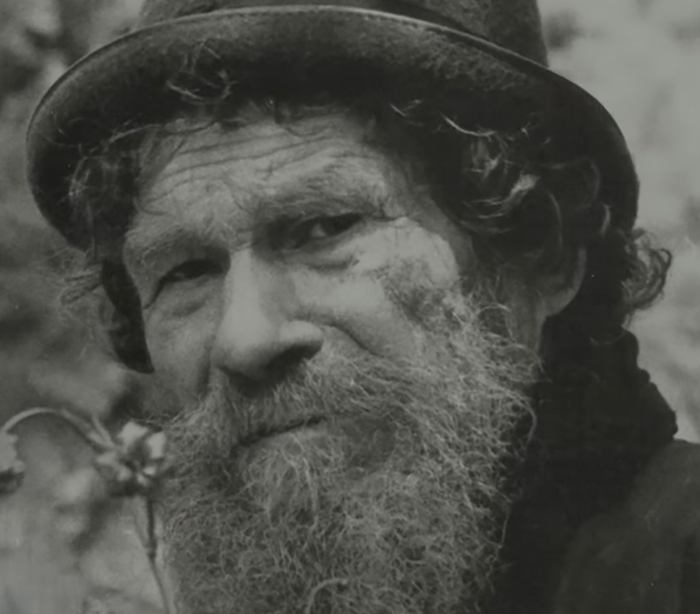
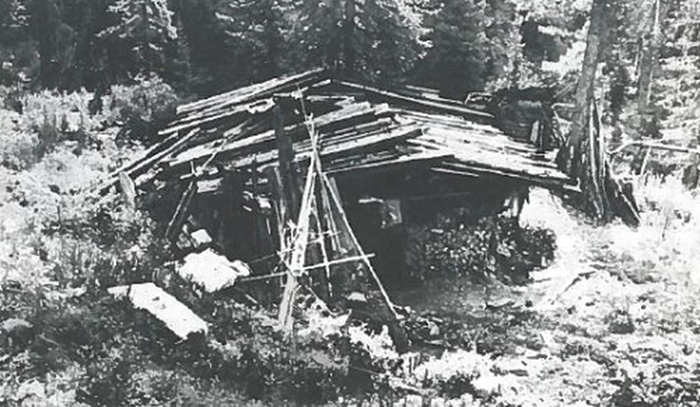
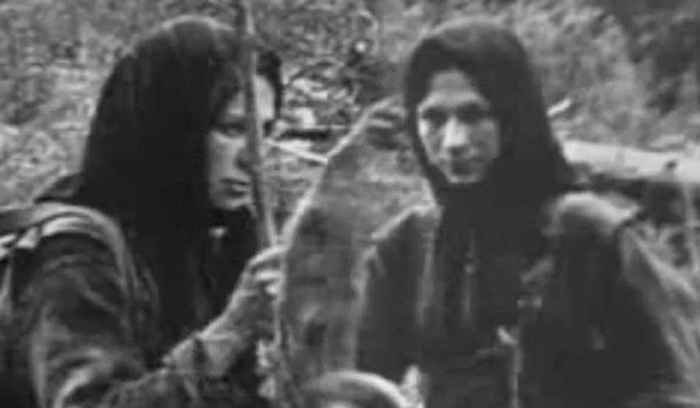
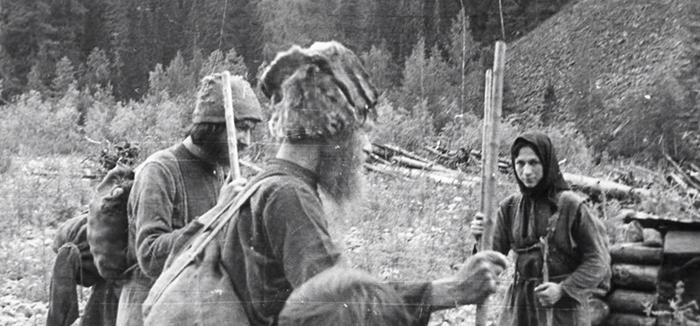
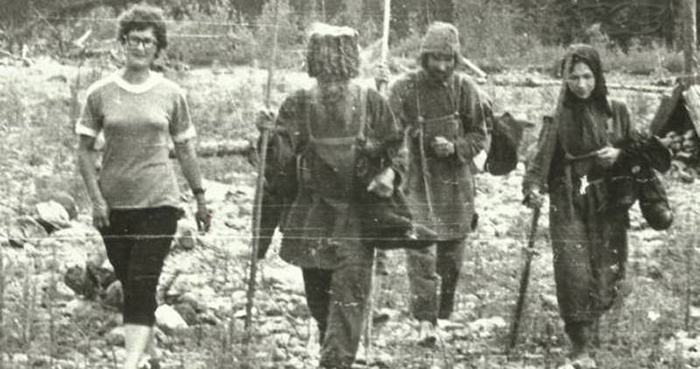
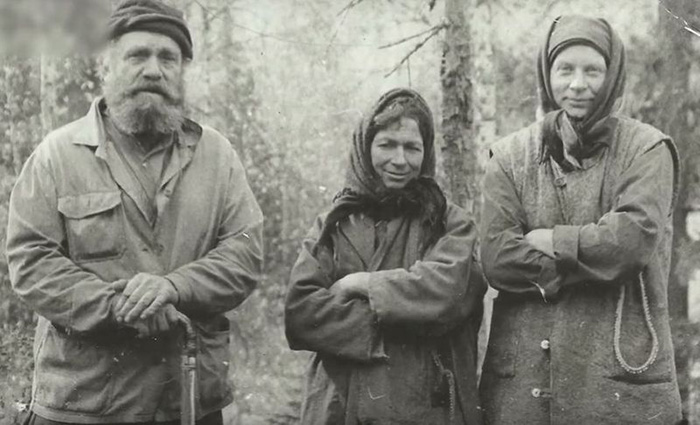
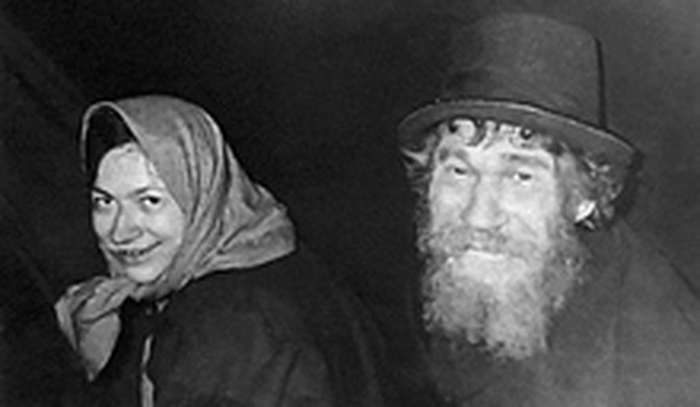
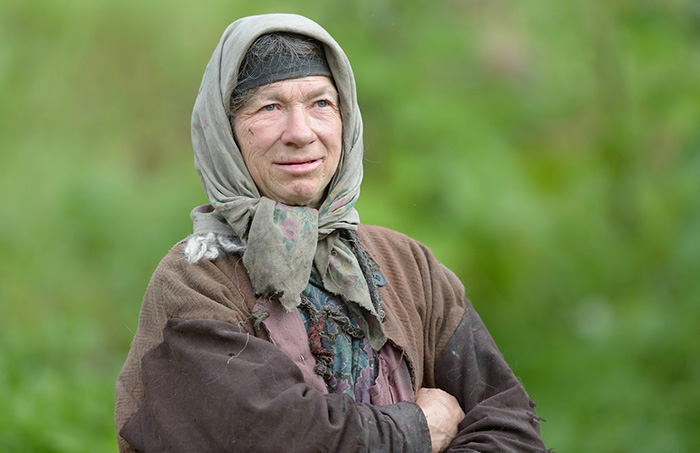
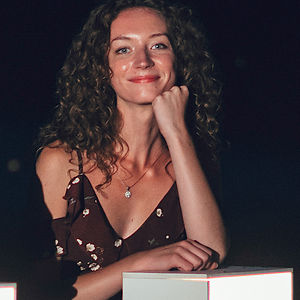


244
34